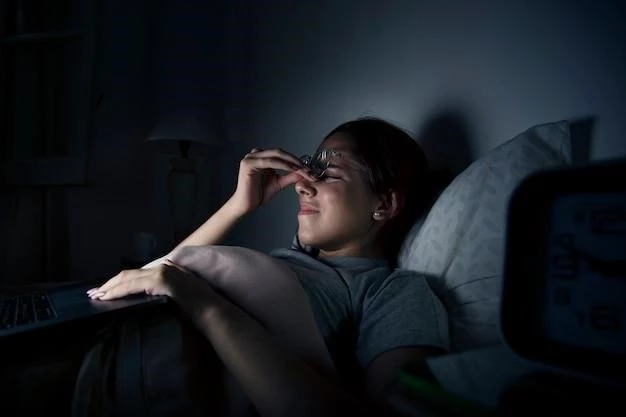Introduction to Night Blindness
Night blindness, also known as nyctalopia, is a type of vision impairment that primarily affects an individual’s ability to see in low light or at night. While it is commonly referred to as a symptom, night blindness is not a condition in itself.
What is Night Blindness?
Night blindness, also known as nyctalopia, is a vision impairment that makes it difficult to see in low light or at night. It is not a standalone condition but rather a symptom of underlying issues like cataracts, retinal diseases, or vitamin A deficiency. People with night blindness may struggle to see well in dimly lit environments, experience glare around lights, and face challenges while driving at night. Seeking prompt evaluation and treatment from an eye doctor is crucial if you suspect you have night blindness, as it can impact your daily life and safety.
What is Night Blindness?
Night blindness, or nyctalopia, is a condition affecting vision in low light. It can be caused by various eye conditions like cataracts, glaucoma, diabetes, and vitamin A deficiency. Seeking professional evaluation is crucial if you experience difficulties seeing in dimly lit environments to identify and address the underlying cause of your night blindness.
Common Signs of Night Blindness
Signs of night blindness include difficulty seeing in poorly lit environments, constant squinting in the dark, and experiencing halos or glare around lights at night. If you notice these symptoms, consult with an eye care professional for diagnosis and appropriate treatment.
Underlying Conditions Causing Night Blindness
Night blindness can be caused by various underlying eye conditions such as cataracts, glaucoma, diabetes, and nearsightedness. It’s essential to seek professional help for an accurate diagnosis and appropriate treatment based on the specific cause of your night blindness.

Diagnosis and Evaluation
Diagnosing night blindness involves evaluating medical history, undergoing an eye examination, and possibly blood tests to check levels of vitamin A and glucose for proper diagnosis and treatment.
Medical History and Eye Exam
Diagnosing night blindness involves a thorough evaluation of your medical history and a comprehensive eye examination. It is essential to consult with an eye care professional to assess your symptoms and determine the underlying cause of your night blindness.
Blood Testing for Vitamin A and Glucose Levels
To diagnose night blindness, blood tests measuring vitamin A and glucose levels may be conducted. Imbalances in these levels can contribute to night blindness, making it crucial to ensure proper balance through necessary treatments and dietary adjustments.
Treatment Options for Night Blindness
Treatment for night blindness depends on the underlying cause. Addressing issues like myopia, vitamin A deficiency, and cataracts can improve vision in dim or low light scenarios.
Treatment Based on Underlying Cause
Treatment for night blindness varies based on the root cause. Addressing the specific underlying condition, such as myopia, vitamin A deficiency, cataracts, or inherited retinal diseases, is essential for improving night vision. Consult with your healthcare provider to determine the most suitable treatment plan.
Glasses Prescription for Myopia
Glasses with the correct prescription for myopia can help improve vision in low-light conditions for individuals experiencing night blindness. Regular eye check-ups are essential to ensure the prescription is up to date and effective.
Managing Diabetes and Vitamin A Deficiency
Managing conditions like diabetes and addressing vitamin A deficiency are crucial in treating nightnnbsp;blindness. Maintaining blood sugar levels and ensuring adequate vitamin A intake through diet or supplements can help improve your vision in low-light conditions.
Surgical Procedures for Cataracts and Glaucoma
When night blindness is caused by conditions such as cataracts or glaucoma, surgical procedures might be necessary for treatment. Consulting with an eye specialist can help determine the most suitable surgical interventions to improve your vision in low-light settings.
Prevention and Lifestyle Changes
To improve night blindness, remember the importance of regular eye exams and consider dietary changes to enhance night vision. Consult an eye care professional for personalized recommendations.
Importance of Regular Eye Exams
Regular eye exams play a vital role in maintaining optimal eye health and detecting issues like night blindness early on. Schedule routine check-ups with an eye care professional to monitor your vision and address any emerging concerns promptly.
Dietary Recommendations for Improving Night Vision
Enhancing night vision can be achieved through dietary changes. Including foods rich in vitamin A like carrots, spinach, and sweet potatoes can help improve vision in low-light conditions. Consult with a nutritionist for personalized dietary recommendations to enhance your night vision.
Definition and Nature of Nyctalopia
Nyctalopia, commonly known as night blindness, is a condition that impairs vision in low light. It can be a symptom of various eye diseases, affecting the ability to see in dimly lit environments.
Recent research has revealed insights into hereditary eye diseases affecting ocular cells and tissues, such as congenital glaucoma, cataracts, aniridia, and retinitis pigmentosa. Understanding these conditions contributes to advancements in managing night blindness effectively.
Research on Hereditary Eye Diseases
Recent research has uncovered valuable insights into various hereditary eye diseases impacting ocular cells and tissues, like congenital glaucoma, cataracts, aniridia, and retinitis pigmentosa. Understanding these conditions aids in advancing effective management strategies for individuals experiencing night blindness.

Impact of Night Blindness on Daily Life
Night blindness can create challenges in poorly lit environments, affecting activities like driving at night. Consult an eye care professional for proper diagnosis and treatment to manage these issues effectively.
Challenges Faced in Dimly Lit Environments
Night blindness can pose difficulties in dimly lit environments, impacting activities like driving at night. It can lead to trouble adapting to darkness and may affect your overall visual experience in low light conditions. Seeking professional help is crucial to overcome these challenges effectively.
Risks Associated with Night Blindness while Driving
Night blindness can pose significant risks while driving in low-light conditions. Individuals experiencing night blindness may have difficulty seeing clear images, distinguishing objects, or judging distances correctly, increasing the likelihood of accidents. It’s essential to seek professional evaluation and appropriate treatment to ensure road safety and avoid potential hazards associated with night blindness while driving.
Seeking Professional Help for Night Vision Problems
When experiencing night blindness, it’s crucial to seek professional help for accurate diagnosis and tailored treatment. Consult an eye care specialist for guidance on managing your night vision issues effectively.
For reliable information on night blindness, seek guidance from reputable sources like medical websites, eye care professionals, and scientific articles. Stay informed to make well-informed decisions about managing night blindness effectively.
Where to Find Reliable Information on Night Blindness
For reliable information on night blindness, seek guidance from reputable sources like medical websites, eye care professionals, and scientific articles. Stay informed to make well-informed decisions about managing night blindness effectively.
